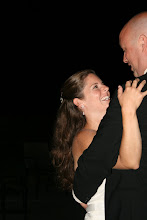Critical librarianship is not a topic I have thought much about until this class. I found myself thinking about it all week while at work. What does this mean for my practice as a Library Media Specialist? How do I define critical librarianship when working in a school library? Since beginning to think about what this means for this field, I think I realized that there might not be a single definition. This idea of critical librarianship is probably going to be an ever changing idea. With technology and educational practices changing so often, I have to imagine that our thoughts about critical librarianship will change along with them. So far these are the thoughts and questions I have about my practice as a critical LMS:
I am a teacher librarian above all else. Everyday I try to find new ways to teach information literacy skills. These teaching moments might be as simple as helping a first grader look for a book in the catalog or it might be helping an upper school student work through pages of research notes for a paper.
The library space should be a place that encompasses every type of literacy. Games, music, books, magazines, videos and internet access should be accessible to students. Perhaps some librarians think that a school library should be restricted to curriculum content. Why shouldn't the school library be a place where students can work and play? Obviously there are issues surrounding this idea. If the library offers music and games, will the students use the library for school work? Why does the school library have to be limited to curriculum content only? What about down time for students? Shouldn't the library be a place where they can explore? If public libraries offer these services, why can't school libraries?
It is well known that it is not easy to get teenage boys to read books. If the boys don't want to read books, does that mean the library has nothing to offer them? What about their other interests? Perhaps the definition of literacy needs to be redefined for these students.
Library as a community space: In a school, the library sometimes becomes a dumping ground for students who misbehave or have no place else to go. How can change that practice and make the space more open to all students, faculty and families? Hosting meetings and clubs in the library might help people see that it is more than a place that holds books.
I asked myself a lot of these questions this week. These are questions that I will think about as I continue to teach and think about the library as a place for students growing up in a digital age. I will most likely revisit this topic the more I think about it.
*A note about me: I am a librarian in an all boys school which is why I sometimes use "boys" instead of the general term "students".
Subscribe to:
Post Comments (Atom)

Your post makes me think that a clear and working definition of literacy is really necessary before we can suggest that it needs to be changed. I have a feeling that if we as a class thought a bit about what it means to be literate, we may find that a lot of what we need in order teach literacy in a more meaningful way is present in the definition already. Thanks for this post; you just helped me plan tmw's class!
ReplyDeleteWhen I was in elementary school, we would have "library" every week. During those 45 minutes, we would return our borrowed books, and then we were allowed to browse the shelves and check out 2 books for pleasure reading. When we needed a book for a report, we were allowed to check out 3 books - the usual 2 for pleasure and 1 for the schoolwork. For those of us who read a lot (like me!), we would often visit the library during recess and return and check out 2 more books; we didn't have to wait to do this until our class officially had library. This way, I was able to pretty much satiate my appetite for reading, and I got to read almost every book in the library. Perhaps if you had a simiilar policy in your library, of the students being able to check out books for pleasure, your boys would enjoy reading and coming to the library for pleasure.
ReplyDeletein writing my own post about this and reading others, i have to admit, it seems to me like a masters of library science will be an outdated credential. unless the process in getting an mls is more focused on education, more focused on technology, more focused on what libraries will be morphing into in the coming years... i just can't see anyone making that strong of a point to why it is necessary for a librarian to obtain one.
ReplyDelete